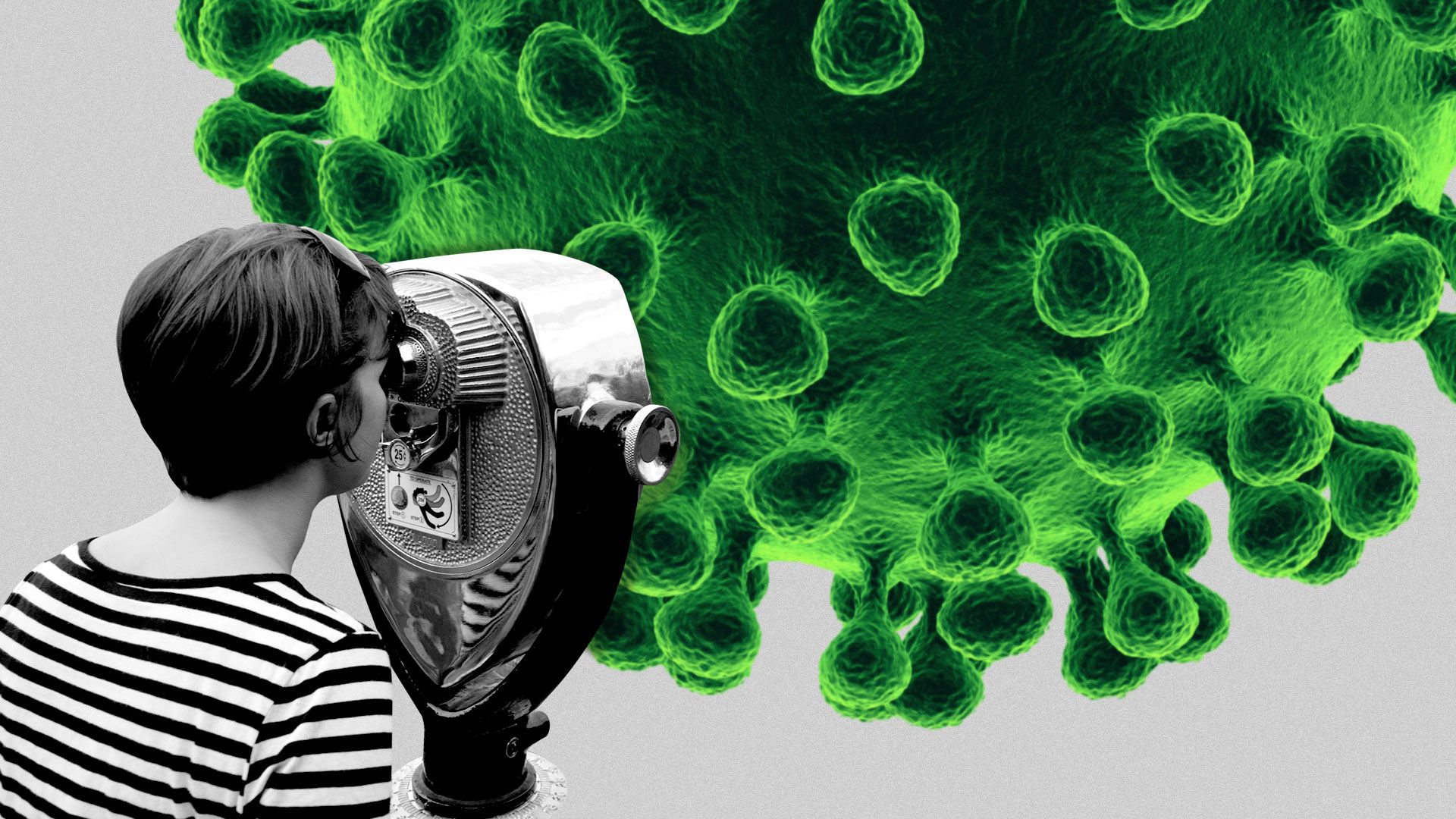What to expect next with the coronavirus
Add Axios as your preferred source to
see more of our stories on Google.

Illustration: Eniola Odetunde/Axios
As the coronavirus spreads further within the U.S., we're getting a pretty good picture of what to expect next — and how deeply our lives will change.
Why it matters: There are all kinds of scary scenarios that are more speculative, but we don't need to go down that road — there are already enough grim headlines and disruption in the changes we know are coming.
Here's what to expect in the coming weeks and months.
More confirmed cases
Axios health care editor Sam Baker reports that as testing improves, the number of new cases may seem like an explosion because we are more likely to be catching cases that we previously would have missed.
- More deaths. A large number of the cases in Washington state are linked to a nursing home — the worst possible place to have an outbreak, given that the elderly are especially vulnerable to the virus.
- Some deaths won't fit the pattern. At a White House press conference Feb. 29, Anthony Fauci of the National Institutes of Health noted that most deaths will be in the high-risk groups: senior citizens and people with underlying health conditions. But every once in a while, he said, "you're going to see a 25-year-old person, who looks otherwise well, that's going to get seriously ill."
More isolation
Austin's South by Southwest festival was just the latest big event to be spiked — and it won't be the last. This week's AFL-CIO Presidential Forum, a major energy conference, a Federal Reserve event, the Milken Institute Global Conference, and others have been called off or postponed over fears that the virus could spread at mass gatherings.
- More school closures. A Seattle-area school district closed its schools, and as more cases are discovered, it's reasonable to expect that other schools will shut down, too. (There will also be lower-level responses, like the two schools in Wellesley, Massachusetts, that closed early so the buildings could be sanitized after a parent tested positive for the virus.)
- Religious services will be affected, too. In New Rochelle, New York, Temple Young Israel was ordered to stop all services after a Westchester man who attends the temple tested positive for the virus.
- More remote work. As Axios' Bryan Walsh points out, remote work and videoconferencing have become more common already — and we're likely to see more of that. Companies like Starbucks are also moving shareholder meetings online, Axios' Courtenay Brown reports.
Other economic effects
There is limited data so far about how the outbreak has affected the U.S. economy, Courtenay reports — but more is coming. And we can expect corporations to warn Wall Street that the virus might dent profits in the short-term.
- More home cooking. Axios managing editor Jennifer Kingson notes that we're likely to see more people stocking up on canned goods and other nonperishable foods. And takeout delivery could suffer as fears grow of contamination among food-prep workers who can't take sick days.
- The airline industry will take a hit. It's already happening, as Axios' Joann Muller reported Friday — but she also notes that it might only be a short-term hit. The industry recovered quickly after 9/11 and the 2003 SARS epidemic.
- The movie industry will suffer losses. It's not just that we won't get to see that new James Bond film — the whole industry is bracing to lose billions of dollars, as Axios' Sara Fischer reported.
The bottom line: There's no point in getting unnecessarily alarmed, but these are the safest bets about what lies ahead — and no one should be surprised when they happen.
